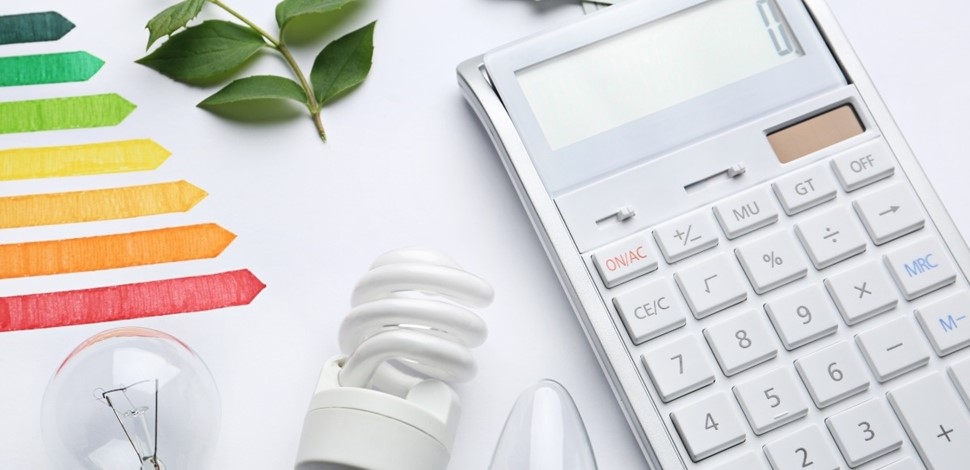More of us may be working or studying from home at the moment and using our cars and public transport much, much less, thus saving fuel, emitting less carbon emissions and saving energy.
But let’s not congratulate ourselves too much, as there are many more simple ways that staff and students at Forth Valley College can reduce energy usage while we are spending more time at home.
As it’s National Energy Saving Week (Monday 18 January – Sunday 24 January) we have been inspired by handy hints from the Energy Saving Trust to help you save energy and some money at the same time.
Keeping warm
Before lockdown restrictions many people’s heating would have been off during the day as they would have been out at work, now we are at home all day and things have changed. But human beings are more active during the day, so you will not need to have it up full blast. If you do need it on, only heat the rooms you are using. If you live alone, perhaps a portable heater directed to your seat might be an alternative to having the central heating on.
You could also try turning the thermostat down a degree or two to find a comfortable temperature – each degree can typically save around £80 a year.
Draught proofing around window and door frames is another energy saving technique that can keep you toasty in the winter months and allow you to buy more ice cream in the summer.
Also as you are not coming into work and having to adhere to a smart, but casual dress code, why not put your Christmas jumper on in February or anything you want to keep warm!
Charging and keeping tech on stand-by
This could be a potential money saver – perhaps saving up to £30 a year on bills! Top tips are:
- Unplug all chargers when not in use, especially any that have display lights
- Turn off tablets, laptops and consoles as soon as you stop using them, and ideally unplug them
- Do not charge electrical items once they reach 100% or leave them charging overnight
- Unplug your internet router when the last person goes to bed
- A standby saver allows you to turn all your appliances off standby in one go.
Always check instructions though as some satellite and digital TV recorders may need to be left plugged in so they can keep track of any programmes you want to record.
Let there be efficient light
Try not to use electrical lighting during the day if you can help it and make sure people living in your home turn out the lights when they leave the room. That alone can save you £15 a year.
Also have a think about replacing traditional bulbs with energy efficient long lasting LED light bulbs. Apparently the UK average cost to replace all home lights bulbs would cost £100, but would save £35 on bills per year. This would be well worth it in the long run.
Tea or coffee
We can bet your consumption of tea and coffee has gone up over lockdown, and if that is the case there are some useful tips to make this simple practice more efficient.
- Don’t overfill your kettle –boil the amount of water you need for the number of drinks you are making at the time.
- Even if you drink a lot of hot drinks during the day, it’s still more energy efficient to boil what you need each time you make a drink rather than fill the kettle at the start of the day and boil too much water.
This can save around £6 a year, and you can see all these small savings are adding up to big bill savings and excellent ways to reduce the use of precious energy.
Cleaning up
Doing the laundry can be the bane of many as far as domestic chores are concerned, but again there are opportunities to save some energy in the process.
One way to do this and save some money at the same time is to only run the washing machine when it is full, using the eco mode, and washing at 30 degrees whenever possible.
If you reduce your washing machine use by just one cycle per week you will save £5 a year on energy.
By the same token your dishwasher will be working double or triple time at the moment, but again wait till it is completely full before pressing start and also find the eco setting. More pennies to be saved here.
Too many cooks
If you bake or cook regularly, making food in batches in a full oven can once again reduce multiple fire-ups. You can then freeze any stuff you don’t eat immediately and use the micro-wave to reheat. Saves you binning excess food too.
Changing suppliers
Saving energy is all well and good, but perhaps you can save even more money by switching your energy supplier. Go on, shop around for a better deal.
Wash and go quickly
Did you know that taking one less minute in the shower each day can save up to £7 per person, per year on your energy bills. And if you use a water-efficient showerhead a household of four people could save an extra £70 a year on gas for water heating, plus £115 a year on water bills if they have a water meter.
It doesn’t take much effort to save energy and money, why not give it a go.


